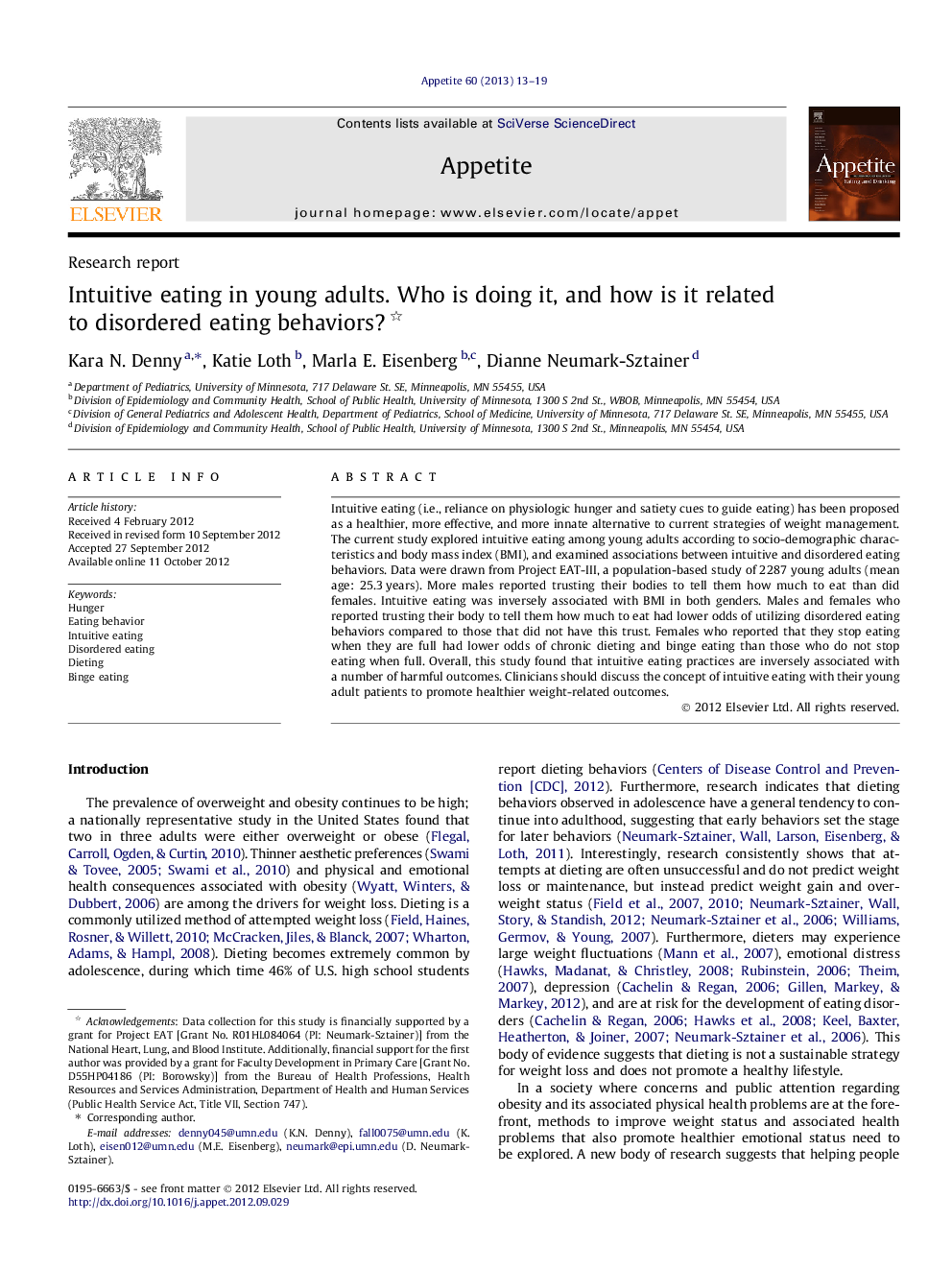| کد مقاله | کد نشریه | سال انتشار | مقاله انگلیسی | نسخه تمام متن |
|---|---|---|---|---|
| 939759 | 1475420 | 2013 | 7 صفحه PDF | دانلود رایگان |

Intuitive eating (i.e., reliance on physiologic hunger and satiety cues to guide eating) has been proposed as a healthier, more effective, and more innate alternative to current strategies of weight management. The current study explored intuitive eating among young adults according to socio-demographic characteristics and body mass index (BMI), and examined associations between intuitive and disordered eating behaviors. Data were drawn from Project EAT-III, a population-based study of 2287 young adults (mean age: 25.3 years). More males reported trusting their bodies to tell them how much to eat than did females. Intuitive eating was inversely associated with BMI in both genders. Males and females who reported trusting their body to tell them how much to eat had lower odds of utilizing disordered eating behaviors compared to those that did not have this trust. Females who reported that they stop eating when they are full had lower odds of chronic dieting and binge eating than those who do not stop eating when full. Overall, this study found that intuitive eating practices are inversely associated with a number of harmful outcomes. Clinicians should discuss the concept of intuitive eating with their young adult patients to promote healthier weight-related outcomes.
► Men are more likely than women to trust their bodies to tell them how much to eat.
► No significant differences in either aspect of intuitive eating were found across socio-demographic characteristic.
► Both aspects of intuitive eating were lower among those with higher BMI status.
► Both aspects of intuitive eating were associated with fewer disordered eating behaviors.
Journal: Appetite - Volume 60, 1 January 2013, Pages 13–19